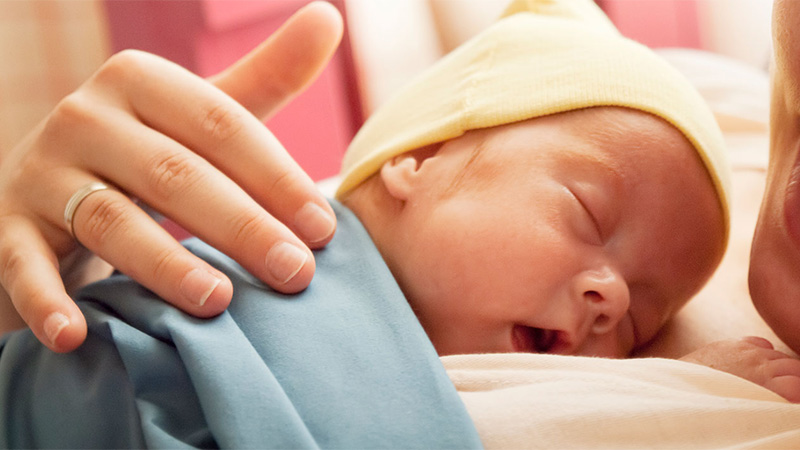Babies born before the due date need special care during the first 2 years, especially if they were very small at birth. Premature or Preemie babies are babies born before the 37 th week of pregnancy and weigh less than 2,500 grams. This is often seen in cases of twin births.

Here is some advice on how to care for your premature baby when he or she comes home from the hospital.
Baby’s growth and development
It’s important to take your baby to your doctor soon after the baby leaves the hospital. Your doctor will check your baby’s weight gain and find out how your baby is doing at home.
Your baby may not grow at the same rate as a full-term baby for the first 2 years. Premature babies are usually smaller during this time. Sometimes they grow in bursts. They usually catch up with “term” babies after a while. To keep a record of your baby’s growth, your doctor can use special growth charts for premature babies. Your doctor will also want to know things like how active your baby is, when your baby sits up for the first time and when your baby crawls for the first time. These are things doctors want to know about all babies.
Sleep Schedule
Premature babies sleep most of the day and cry very weakly. They usually wake up when they are hungry. Take advantage of these moments to breastfeed them. During the first month, the premature baby has not yet acquired a sleep-wake rhythm; parents will therefore need to be patient and flexible.
Feeding
Talk with your doctor about feeding your baby. Your doctor may recommend vitamins, iron, and a special formula if the baby is bottle-fed. Vitamins are often given to premature babies to help them grow and stay healthy. Your baby also may need extra iron. After about 4 months of taking iron drops, your baby will have about the same amount of iron as a full-term baby. Your doctor may want your baby to take iron drops for a year or longer.
Your baby’s feeding schedule
At first, most premature babies need 8 to 10 feedings a day. Don’t wait longer than 4 hours between feedings, because if you do, your baby may get dehydrated (dehydrated means lacking fluids). Six to 8 wet diapers a day show that your baby is getting enough breast milk or formula. Premature babies often spit up after a feeding. If your baby spits up too much, he or she may not gain enough weight. Be sure to talk to your doctor if you think your baby is spitting up too much.
Tip: try as much as possible to maintain eye contact with your baby when feeding, this reassures and calms him.
Skin to Skin Contact
The skin of the premature baby, still very delicate, is not ready to face the external atmosphere. In addition, the surface area of the skin being comparatively much larger than the weight, the baby has difficulty maintaining a certain body temperature. It is therefore essential for the baby to be in contact, skin to skin , with his mother. It’s a great technique that gives the newborn a feeling of protection. At bath time, to make contact with water less brutal, wrap it in a towel (which you will later remove) when putting down in the tub.
Frequent Check ups
Premature babies have a weaker immune system, which is why it is essential to go to the pediatrician often for check-ups. The doctor will assess which vaccines the baby will need and when to give them; depending on the date of birth, he will establish a schedule of follow-up examinations.




Thanx for the caring suggestions. Yes babies need more care.
Kitni helpful post hai, parents n family k liye ye mushkil samay hota hai, aapne sab kitne acche se samjhaya